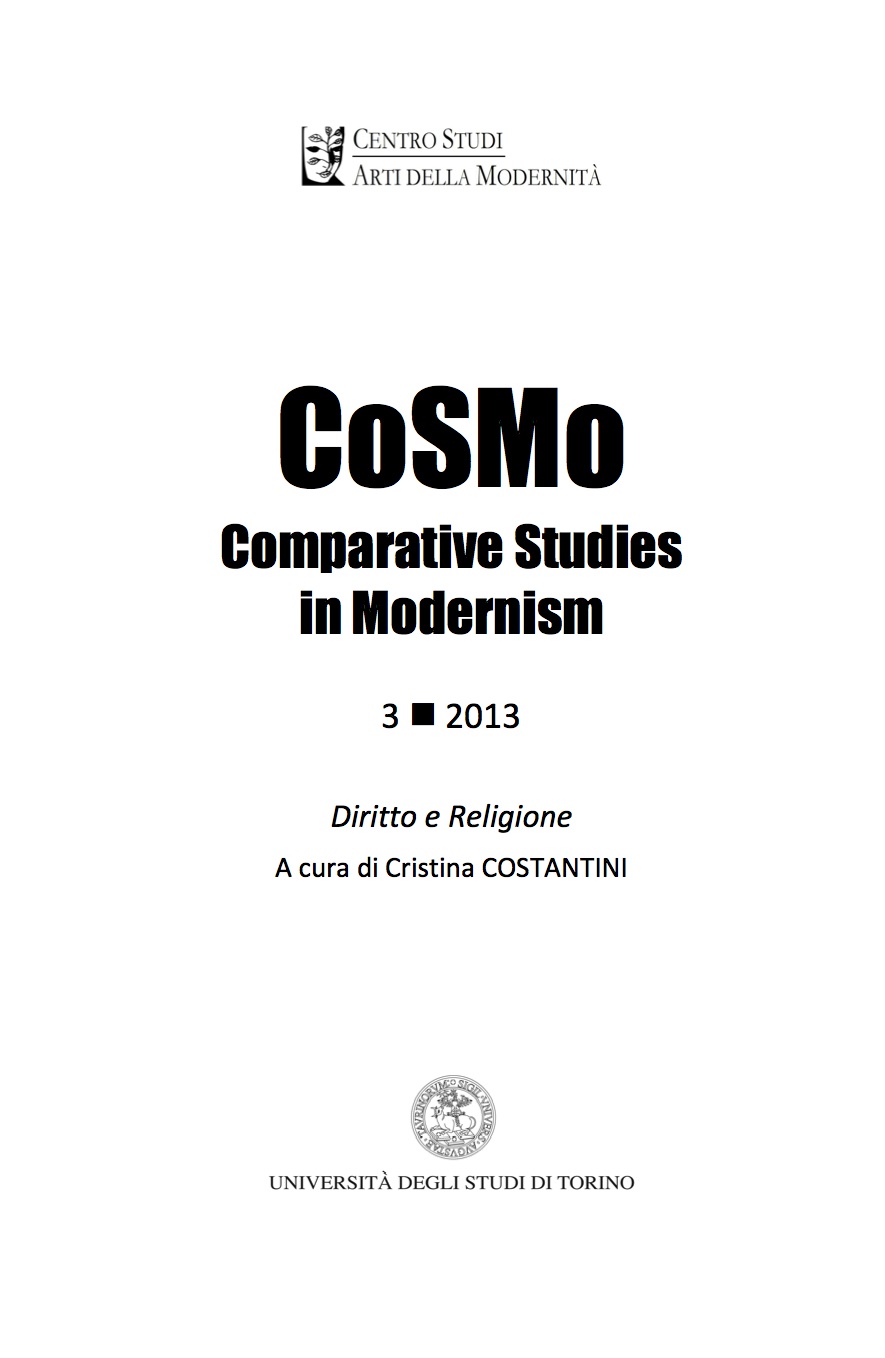Stasis in Molmann and Scmitt
DOI:
https://doi.org/10.13135/2281-6658/443Keywords:
kenosis, stasis, Moltmann, Schmitt, political theology, close reading, interpretation, canon, anti-canon, quotationAbstract
The essay introduces an original interpretation of Moltmann’s thought on Christian kenosis, according to the fundamental critical method known as ‘close reading’. On this ground, the Author brings to the surface the complex bulk of literary quotations which give substance to a specific passage in Moltmann’s work “The Crucified God”. Quotations become an intellectual device apt to produce meaning through its proper deferral and suspension. Within this framework, the Author’s main purpose is to put at the centre of the scene the explicit reference made by Moltmann to C. Schmitt’s concept of stasis, in order to explain the self-emptying of God even in a political perspective, as a kind of internal battle within divinity. The theological canon (Christian kenosis as moulded by Moltmann) is conceptually linked to the political anti-canon (stasis and exception as defined by C. Schmitt). In this perspective the structural relationship between Theology and Politics, usually epitomized by the synthetic expression of ‘political theology’, comes to be re-substantiated.
Downloads
Downloads
Published
Issue
Section
License
Authors keep the copyrights for their work and give the journal the work’s first publication copyright, which is at the same time licensed under a Creative Commons License – Attribution, which in turn allows other parties to share the work with an acknowledgement of the work's authorship and initial publication in this journal.
Content Licence

You are free to copy, distribute and transmit the work, and to adapt the work. You must attribute the work in the manner specified by the author or licensor (but not in any way that suggests that they endorse you or your use of the work).
Metadata licence

CoSMo published articles metadata are dedicated to the public domain by waiving all publisher's rights to the work worldwide under copyright law, including all related and neighboring rights, to the extent allowed by law.
You can copy, modify, distribute and perform the work, even for commercial purposes, all without asking permission.





